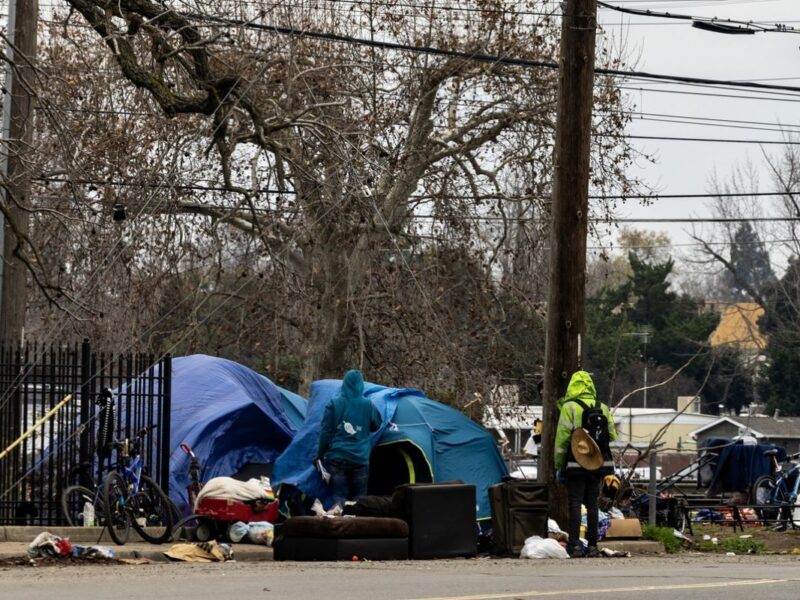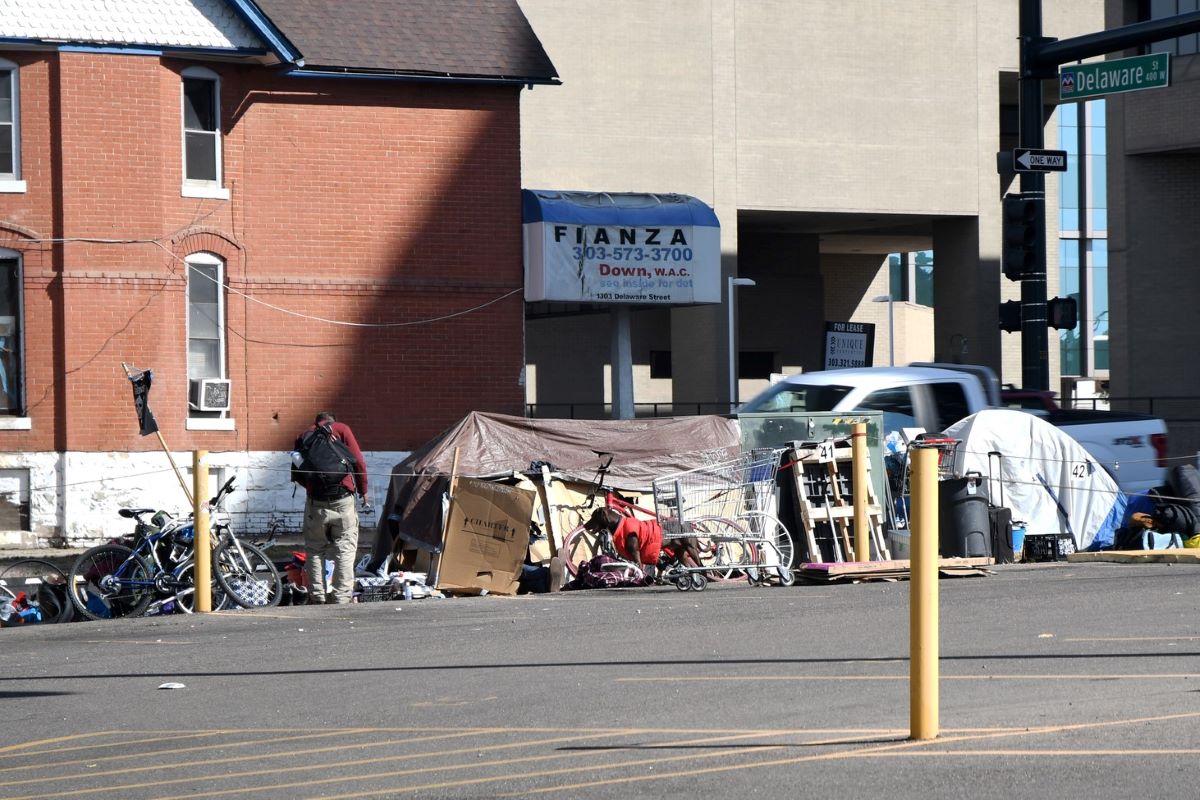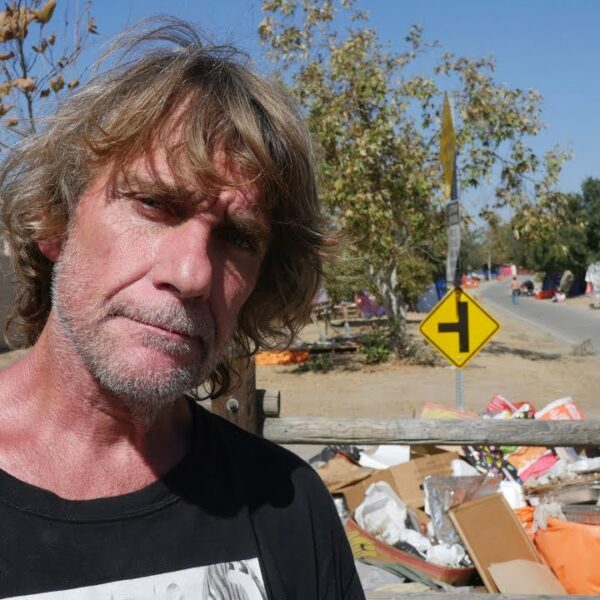Denver’s new mayor Mike Johnston is taking a more compassionate approach to addressing homelessness by providing some encampments with trash and water services. But some advocates are concerned about the city sweeping encampments despite the mayor’s promise to rethink that approach.
Johnston has promised big changes to how Denver addresses homelessness. The encampment services represent a stark departure from Johnston’s predecessor, Mayor Michael Hancock, who was a prominent supporter of Denver’s urban camping ban when it was passed in 2011.
In more than a decade since, the camping ban has become a political lynchpin in debates about how the city should address homelessness. The camping ban has also been used to justify several encampment sweeps. However, public health risks have become the most popular justification since the coronavirus pandemic began in March 2020.
After a recent sweep just three weeks into Johnston’s first term, some advocates are starting to wonder about Johnston’s commitment to his grand promises.
On August 4, city crews swept an encampment of about 70 people at the intersection of 22nd Street and Stout Street in Denver’s Five Points neighborhood.
If there is anywhere in the city where homeless people should reside, it’s here. There are services and shelters provided by the Salvation Army, the Mile High United Way, Urban Peak, and the Colorado Coalition for the Homeless. But this block also has the highest frequency of encampment sweeps because there is not enough room in any of the shelters to accommodate the number of people who will use them.
One group criticizing Johnston for sweeping the encampment is Housekeys Action Network Denver (HAND), a nonprofit advocacy organization.
Johnston’s administration declared a public health risk after witnessing rats living at the encampment, according to a press release from the Denver Department of Public Health and Environment.
The administration also sent outreach workers to the camp beforehand for a housing assessment survey, which logs each respondent’s reported housing need, and offers spots at a local Safe Outdoor Space. HAND said the mayor should have instead focused on creating more “real housing” instead of sweeping the camp.
“[The camp residents] will likely lose property in the process. They will have to find a new spot and get ready to go through this all again,” HAND said in a statement. “This is not the way to protect our community, much less end houselessness.”
Despite the sweep, some advocates say Johnston is making inroads on other compassionate policies to address homelessness that he talked about on the campaign trail.
For example, Johnston issued an emergency declaration on homelessness on his first day in office. The order allows the city to use additional federal dollars, if necessary, and provides pathways for affordable and supportive housing projects to get permits approved more quickly.
Johnston’s administration is also piloting a trash service for some encampments in Denver’s Capitol Hill neighborhood. City workers with the Department of Transportation and Infrastructure passed out orange trash bags to campers in early August and will pick up and replenish the bags regularly, DOTI spokeswoman Nancy Kuhn told Denverite.
HAND has advocated for the city to offer encampment trash services for several years, but the calls have largely fallen on deaf ears. City Council President Jamie Torres said that former councilwoman Candi CdeBaca tried to create a similar program, but it never made it into the city’s budget.
Terese Howard, a HAND co-founder, said that the two events show Johnston’s thinking about homelessness is already complicated. That could lead to more people being displaced before a solid solution is hammered out, she added.
“There’s definitely improvements, but that doesn’t take much, considering what we’ve been dealing with Hancock over the last 12 years,” Howard told Denverite. “Staring at 7 a.m. versus 5 a.m. – great. Doing far less sweeps than before – great. Starting trash services at some encampment – great. But that doesn’t ultimately mean doing what’s needed.”
How You Can Help
Now is not the time to be silent about homelessness in Colorado or anywhere else. Unhoused people deserve safe and sanitary housing just as much as those who can afford rent or mortgage.
Poverty and homelessness are both policy choices, not personal failures. That’s why we need you to contact your officials and tell them you support legislation that:
- Streamlines the development of affordable housing
- Reduces barriers for people experiencing homelessness to enter permanent housing
- Bolsters government response to homelessness
Together, we can end homelessness.












